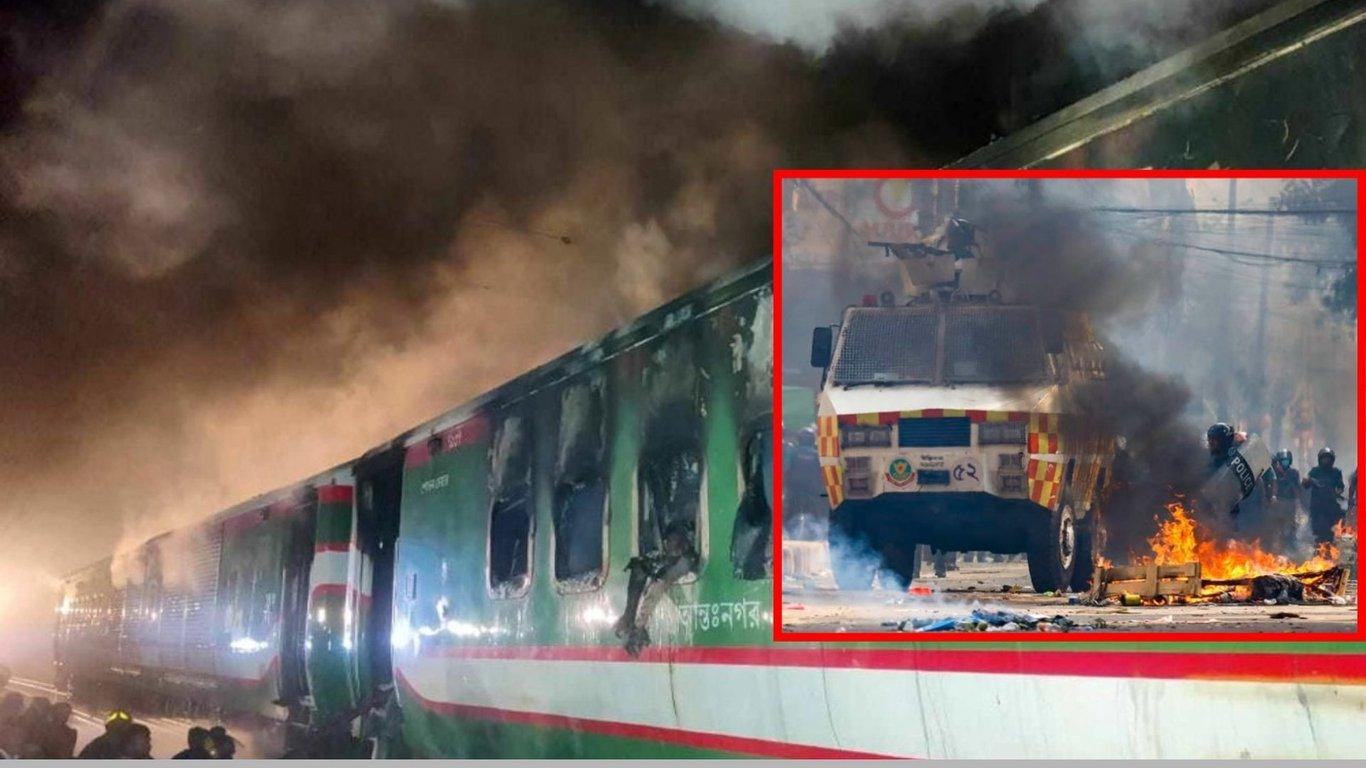Bangladesh: Zero tolerance for terrorism

Terrorism is a social disease and currently, it is a global phenomenon. French sociologist Emile Durkheim said terrorism is a social issue and has been socially established. This means that terrorism has gradually infiltrated into the fabric of society. Terrorism deviates from common criminal activities because its operations generally target civilians, focusing on unconventional populations. In Bangladesh too, most of the incidents of terrorism have targeted civilians. State law enforcement agencies are responsible for providing security to the civilian population. Weakening the state's security apparatus, often for self-interest, is a common objective behind carrying out acts of terrorism. In the political landscape of Bangladesh, there is evidence of collaboration between terrorists and political powers. Examining the history of numerous terrorist incidents worldwide reveals that behind each occurrence, there is often political support contributing to the incidents.
On the eve of the 12th national elections, Bangladesh has witnessed the killing of innocent people by setting fire to bus, train as well as nationwide strike. Moreover, those who have intimidated the general public into refraining from voting, and those who have resorted to threats during the elections are primarily responsible for the incidents of arson and terrorism. Election is a major event, requiring extensive party preparations aimed at encouraging participation. If a political party directs its focus towards promoting terrorism and engages in discussions with terrorists to disrupt the electoral process, how will that party participate in the elections? In the context of the 12th National Parliament election in Bangladesh, instances of such activities have been observed.
Regardless of which party is involved in arson attack, the fundamental principle remains that such actions do not ensure service to the people. On the contrary, those who resort to arson attack in an attempt to gain political prominence are actively working to undermine the democratic process. Their aspirations involve destabilizing the democratic practices by instigating violence. It appears that their aim is to create chaos, disrupt constitutional sanctity, and potentially invite foreign intervention to weaken the government established in this country. They have no concern for the future of this country; their sole focus is on seizing power in the present. That's why, even before the elections, they sought foreign intervention. After the elections, they believe that foreigners will contribute to overthrowing the government in power. With this hope, they continue to shape the landscape of politics. Will the terrorists' unrealistic dreams ever come true?
Those who provide support to terrorists, liaise with them to control the trajectory of political change, or seek to exploit terrorism for political gains are not genuine political parties. They do not engage in politics with a true intention to participate in elections and be elected by the people's votes. Their aim and objective are to ascend to power by any means, and they have chosen the path of terrorism to taste the flavor of power. Wherever there is evidence of illegal foreign interventions, wanted criminals, covert terrorist groups operating from neighboring countries, and fugitives committing crimes, they aim to silence the general public and secure a permanent position in politics through manipulation.
Their sole political strategy revolves around terrorism, and they aim to establish terrorists in politics. Consequently, they seek to create a volatile environment by disrupting elections and creating obstacles to make the electoral process dysfunctional. In the lead-up to the elections, incidents of arson terrorism have instilled a sense of apprehension among the general public. If terrorists manage to come to power in any way, the safety of the people will be compromised, and the nation's resources will be at risk of depletion. In other words, a secure Bangladesh will be jeopardized. Therefore, the people, without relying on any strike or protest, spontaneously participated in the elections, thwarting the terrorists' goal and showcasing their resilience against the threats.
On the other hand, terrorists believed that during their reign of violence, the general public would become disillusioned with elections. We all know that during the election period, there is a transition period in this country that has been targeted by wanted criminals for the past five years. During the election season, they primarily aim to instill fear by carrying out deadly attacks and seek refuge in the shadow of political parties sympathetic to terrorism. They create a volatile atmosphere to maintain control over the environment. The most significant concern is that conspirators from all levels in Bangladesh converge, striving to implement their agendas. For this purpose, they engage in any form of activities to support terrorism.
We have witnessed and learned that those who could not illegitimately avail benefits from Bangladesh, those who have no connection with the people but always perceive threats to the country's independence and sovereignty, and all groups involved in election manipulation come together during the elections and get involved in conspiracies. The 12th National Parliament election in Bangladesh has faced such challenging circumstances.
Furthermore, in the present time, there is a proliferation of rumors, fabrication of falsehoods, and the establishment of myths. Plans to establish falsehoods are also evident. Hence, they want to be a force questioning the elections, attempting to seize power through conspiracies contrary to the elections. Their primary goal is not serving the people but infiltrating the power structure of the country. Therefore, those who seek to bypass the people and come to power will not be election-oriented; this is natural. However, in democratic politics, the objective of every political party is to participate in elections.
The terrorists have repeatedly tried to inflict harm on the people of Bangladesh, although they have caused some distress to innocent civilians, they have not been successful in the long run. Especially when it has been proven that a group has provided assistance to terrorists and engaged in various ways to undermine national sovereignty, the general population in this country has always stood against them. It is widely recognized that no auspicious event in this country has been achieved by terrorists. Terrorists have actively worked to establish Bangladesh as a haven for terrorism. They do not value the people of the country, and their goal is to somehow infiltrate the national sovereignty of this country, tarnish its independence and territorial integrity, and erase the spirit of the Liberation War.
Bangladesh is mine, yours, and everyone's. Let's come together to move forward from the political conspiracies and work towards the overall development of the country. With the goal of the nation's well-being, let's overcome the hurdles and move ahead towards the country's comprehensive progress. Embracing the spirit of the liberation war, all political parties should unite to establish the welfare of the people. United politics can play a leading role, especially in the real implementation of the Fourth Industrial Revolution, to make Smart Bangladesh a reality.
To eliminate terrorism from Bangladesh permanently, it is essential to uproot it from the socio-political fabric of the country. Terrorism thrives when domestic and foreign forces exploit it, entangling Bangladesh in anti-Bangladesh conspiracies. Moreover, in the cultural context of Bangladesh, terrorism cannot rise without political patronage. Hence, it is said that political analysts must go beyond terrorism and work to pave the way forward. Bangladesh cannot afford to be used as a pawn in anti-Bangladesh conspiracies. Ultimately, it can be stated that those who believe in terrorism will never relinquish elections into the hands of the people. Their intention is to ascend to power through alternative means, bypassing the democratic process.


Leave A Comment
You need login first to leave a comment